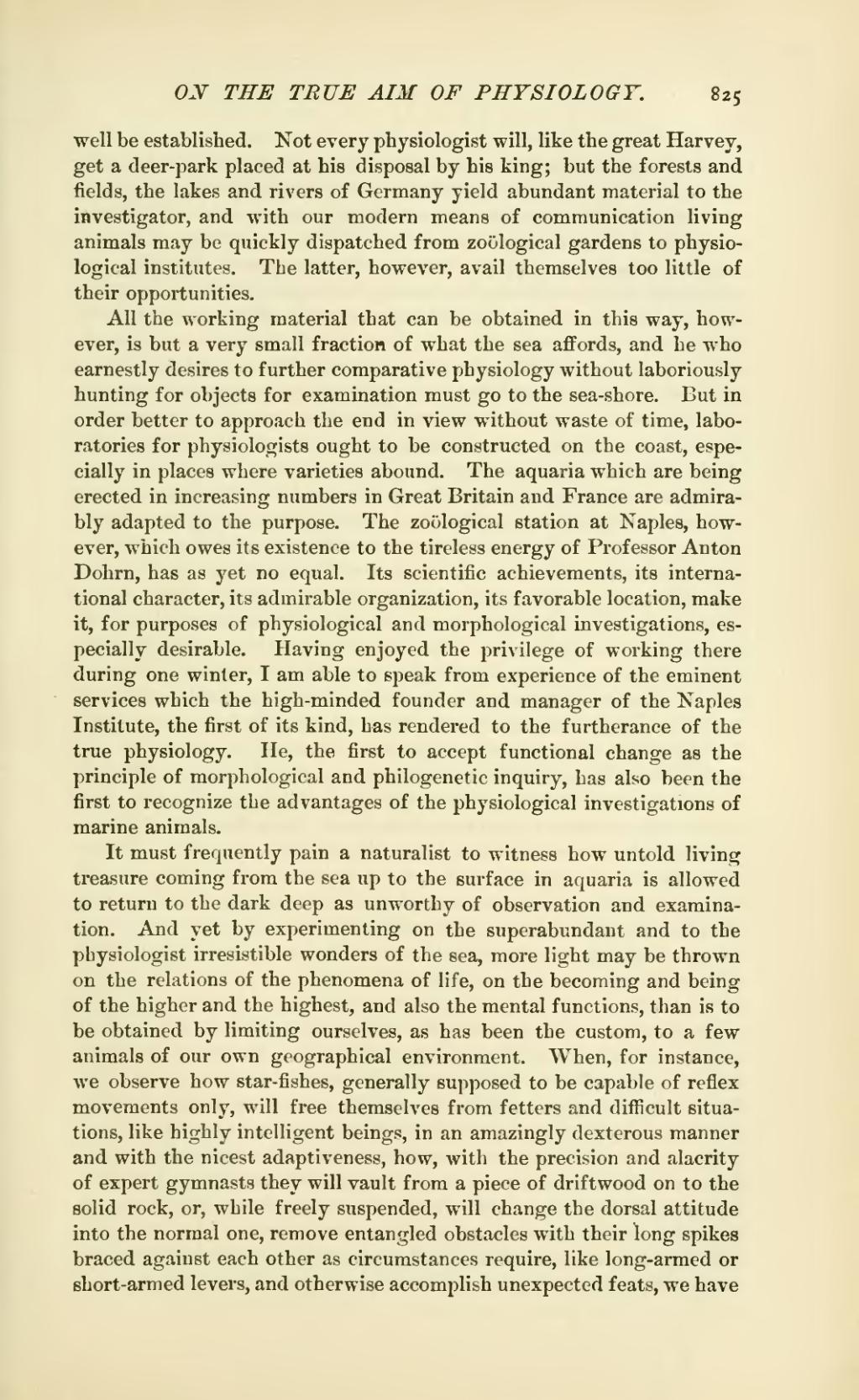well be established. Not every physiologist will, like the great Harvey, get a deer-park placed at his disposal by his king; but the forests and fields, the lakes and rivers of Germany yield abundant material to the investigator, and with our modern means of communication living animals may be quickly dispatched from zoölogical gardens to physiological institutes. The latter, however, avail themselves too little of their opportunities.
All the working material that can be obtained in this way, however, is but a very small fraction of what the sea affords, and he who earnestly desires to further comparative physiology without laboriously hunting for objects for examination must go to the sea-shore. But in order better to approach the end in view without waste of time, laboratories for physiologists ought to be constructed on the coast, especially in places where varieties abound. The aquaria which are being erected in increasing numbers in Great Britain and France are admirably adapted to the purpose. The zoölogical station at Naples, however, which owes its existence to the tireless energy of Professor Anton Dohrn, has as yet no equal. Its scientific achievements, its international character, its admirable organization, its favorable location, make it, for purposes of physiological and morphological investigations, especially desirable. Plaving enjoyed the privilege of working there during one winter, I am able to speak from experience of the eminent services which the high-minded founder and manager of the Naples Institute, the first of its kind, has rendered to the furtherance of the true physiology. He, the first to accept functional change as the principle of morphological and philogenetic inquiry, has also been the first to recognize the advantages of the physiological investigations of marine animals.
It must frequently pain a naturalist to witness how untold living treasure coming from the sea up to the surface in aquaria is allowed to return to the dark deep as unworthy of observation and examination. And yet by experimenting on the superabundant and to the physiologist irresistible wonders of the sea, more light may be thrown on the relations of the phenomena of life, on the becoming and being of the higher and the highest, and also the mental functions, than is to be obtained by limiting ourselves, as has been the custom, to a few animals of our own geographical environment. When, for instance, we observe how star-fishes, generally supposed to be capable of reflex movements only, will free themselves from fetters and difficult situations, like highly intelligent beings, in an amazingly dexterous manner and with the nicest adaptiveness, how, with the precision and alacrity of expert gymnasts they will vault from a piece of driftwood on to the solid rock, or, while freely suspended, will change the dorsal attitude into the normal one, remove entangled obstacles with their long spikes braced against each other as circumstances require, like long-armed or short-armed levers, and otherwise accomplish unexpected feats, we have
